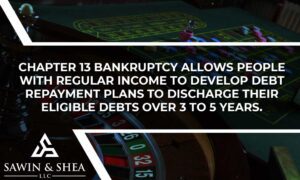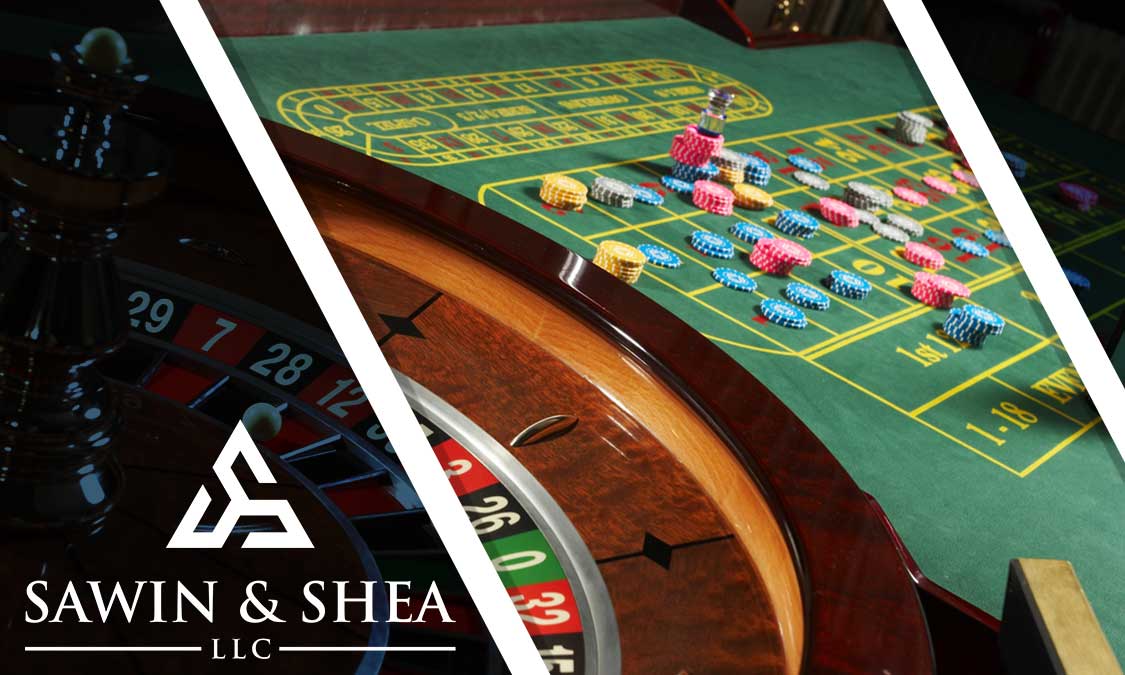Gambling debt can have a devastating impact on your life. Debts can pile up quickly and overwhelm your finances before you have a chance to catch up. Because of this, filing for bankruptcy is often one of the only options you may have. Below, we’ll break down how gambling debt fits into Chapter 13 bankruptcy and how you can prepare if gambling bankruptcy is the next step that you need to take.
Can You File for Bankruptcy Due to Gambling Debt?
The short answer is, yes, you can. If you have accrued substantial gambling debt that you are unable to repay, declaring bankruptcy may seem like your only option. However, not all types of bankruptcy allow for the full discharge of gambling debt. When it comes to gambling losses, Chapter 13 bankruptcy is often the most effective path to find financial relief.
What Is Chapter 13 Bankruptcy?

Chapter 13 bankruptcy allows people with regular income to develop debt repayment plans to discharge their eligible debts over 3 to 5 years. This is different from Chapter 7 bankruptcy which liquidates assets to pay back debts but does not involve a structured repayment plan.
A major benefit of Chapter 13 bankruptcy is that it allows the filer to catch up on missed mortgage, car loan, and other secured debt payments by incorporating them into the repayment plan. This helps prevent repossession or foreclosure.
Chapter 13 Eligibility
To qualify for Chapter 13 bankruptcy and its benefits, you must have regular income from employment or other consistent sources. Income limits vary by state and household size but are generally higher than those imposed on Chapter 7 bankruptcy.
Your repayment plan obligations are calculated based on disposable monthly income and living expenses. With no disposable income, you may still qualify for Chapter 13 bankruptcy with low or no plan payments.
Why Should You File for Bankruptcy From Gambling?

Embarrassed of gambling and have to file bankruptcy? You should not let this shame hold you back. Filing for bankruptcy is a chance for you to regain control over your life and your gambling addiction.
Chapter 13 bankruptcy will give you the time you need to pay off your debts, without the stress of possible liens being filed against your property. Being free from the immediate monetary stress may also give you the breathing room to truly tackle your addiction.
What Are Non-Dischargeable Gambling Debts?

Debts that have accrued within 90 days of filing and which are over $500 are usually considered non-dischargeable. This is because there is the presumption that the gambling bets may have been placed in bad faith–with the assumption that bankruptcy would soon be filed and they would not need to pay back any bets that failed. While this may not have been your intention, these debts can be considered fraudulent.
However, non-dischargeable debts do not preclude you from filing for Chapter 13 bankruptcy. Instead, you will need to propose a plan to pay off these debts over time. Unlike dischargeable debt, you will need to pay the full dollar amount of the debt. Typically, you will have three to five years to pay off this type of debt.
How Can a Bankruptcy Lawyer Help?
Bankruptcy can be a complex process to navigate on your own. A bankruptcy lawyer can help you with their experience of bankruptcy from gambling laws. They will handle paperwork, answer questions, help you build a repayment plan, and help you understand whether your gambling debts meet the requirements for dischargement. Additionally, they may be able to help with: the stoppage of harassing phone calls from creditors, repossessions, foreclosures, and more.
If you need an experienced team of experienced bankruptcy lawyers in Indiana, turn to Sawin & Shea. Their office is located in Indianapolis, Indiana, and they are proud to serve people throughout the state. To speak to an associate to schedule a consultation or answer any questions, call 317-759-1483 today.



